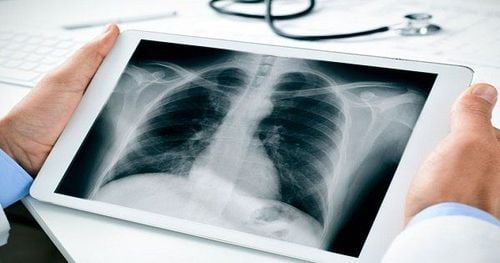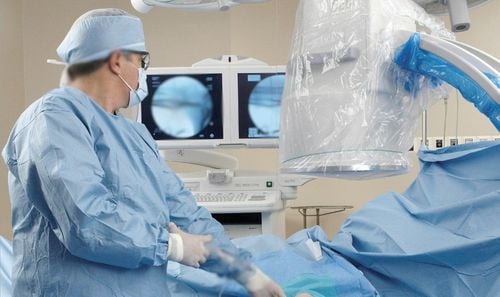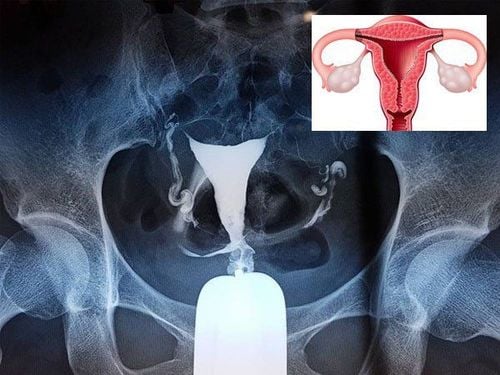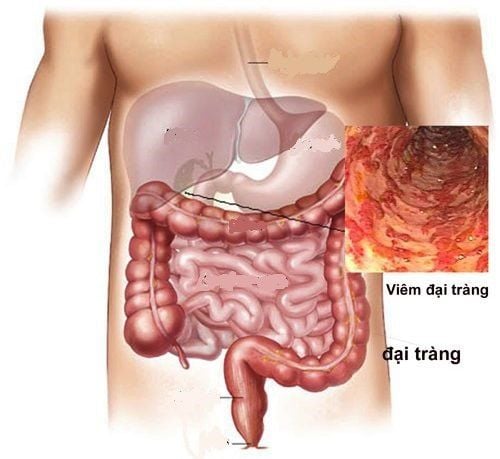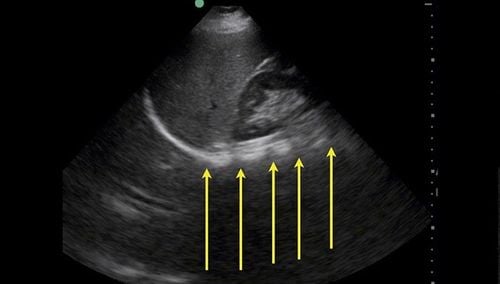This is an automatically translated article.
The article was professionally consulted by Specialist Doctor I Nguyen Thanh Hai - Radiologist - Department of Diagnostic Imaging and Nuclear Medicine - Vinmec Times City International General Hospital.Magnetic resonance imaging (MRI) is one of the subclinical imaging methods, providing clear images and accurate diagnosis of the disease. However, when to take an MRI is a question of many people wishing to perform this method.
1. What is MRI?
Magnetic Resonance Imaging (MRI) is a medical diagnostic technique that creates anatomical images of the body using magnetic fields and radio waves. This method does not use X-rays and does not affect the patient's health at all.Magnetic resonance imaging machine is a sensitive and versatile device that allows us to see cross-sectional images of body parts from many angles in a short period of time.
Magnetic resonance imaging is a modern, effective and widely used imaging method in the world. Today, MRI is used to examine nearly every organ in the human body. This technique is especially valuable in capturing detailed images of the brain or spinal cord. Since the MRI gives 3-D images, the doctor can get information about the location of the lesion. Such information is very valuable before surgery.
2. When is magnetic resonance imaging indicated?
Usually, if falling into the following cases, the doctor will advise and ask the patient to have an MRI scan:● Suspected brain tumor, cranial nerve tumor, stroke, trauma, epilepsy, white matter disease, encephalitis-meningitis, birth defects, diseases related to blood vessels,...
● Diseases related to eyes, ears, nose and throat such as tumors, inflammatory trauma.
● Diseases of the spine such as herniated disc, spinal tumor, trauma, inflammation.
● Diseases related to knee, shoulder, hip, elbow, wrist, ankle joints,...
● Suspected soft tissue tumor, early detection of cancer. Check the condition of internal organs such as liver, spleen, lungs. Diseases of the breast, uterus appendages.
● Also can do more advanced MRI such as cardiac MRI, diffuse MRI, cerebral perfusion..
The MRI scan process usually takes about 12-20 minutes (depending on the number of parts and organs being scanned. and cooperation of the patient during the scan). However, if the diagnosis is abnormal, the scan time may be longer. The time to return results to the patient as soon as possible is about 15 minutes (in emergency cases), for difficult cases requiring consultation, the time can take several hours.
3. Things to do to stay safe during an MRI

● You need to follow the instructions of the staff of the MRI room: So far, not see the effects of magnetic fields on the body. But the high magnetic field of the scanner can damage metal implants inside the body.
Therefore, the patient should inform the staff of the MRI room about: having a pacemaker installed, using an artificial heart valve, using a hearing aid, implanting an electronic device, an intramedullary nail, or using a needle. type of bone combination, shrapnel in the body, IUD 380A T Cu, dentures... because all metal objects need to be removed from the body before the MRI.
● Patients are also not allowed to bring metal objects such as jewelry, watches, hairpins, keys, calculators, cell phones, credit cards... into the MRI room.
● For good image quality, the patient needs to lie still, not move during the MRI scan.
● For cases requiring contrast injection, the medical staff will ask the patient about oral allergy history, kidney disease history before the scan and instructions to sign the consent form. Magnetic contrast agents are completely non-toxic to the body. But this drug can cause allergic reactions such as headache, dizziness, nausea, vomiting, numbness of hands and feet, and itchy rash. However, compared with the allergic effect of contrast, the contrast agent has a rate of causing allergies 6 times less. These side effects are usually mild and disappear after taking antiallergic drugs.
4. Advantages of MRI
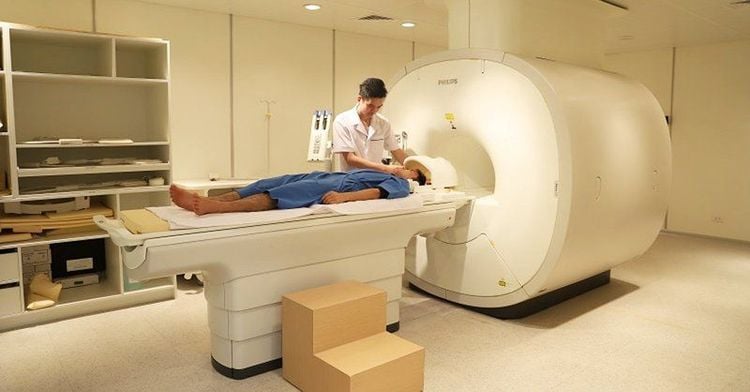
● MRI helps doctors evaluate the function and structure of many internal organs in the body.
● The detail makes MRI a highly valuable tool in early diagnosis and in the evaluation of internal tumors.
● Imaging with MRI does not cause side effects as in imaging with conventional radiographs and CT scans.
● MRI allows to detect abnormalities hidden behind layers of bone that are difficult to detect with other imaging methods.
● An MRI can provide more valuable information than an X-ray in the diagnosis of cardiovascular diseases.
● Do not emit radiation that is dangerous to humans.
Vinmec International General Hospital is currently one of the major hospitals with modern machinery and equipment for general medical examination and treatment procedures and accurate and modern MRI for brain and vascular diseases. brain blood in particular.
Especially, Vinmec International General Hospital is the first unit in Southeast Asia to put into use the new 3.0 Tesla Silent MRI machine from the US manufacturer GE Healthcare.
The machine currently applies the safest and most accurate magnetic resonance imaging technology available today, without using X-rays, non-invasive. Silent technology is very beneficial for patients who are young children, the elderly, patients with weak health or have just had surgery.
Doctor Hai has more than 20 years of experience in the field of diagnostic imaging, especially in the field of multi-segment computed tomography, magnetic resonance. Currently, the doctor is working at the Department of Diagnostic Imaging and Nuclear Medicine - Vinmec Times City International Hospital.
Please dial HOTLINE for more information or register for an appointment HERE. Download MyVinmec app to make appointments faster and to manage your bookings easily.





